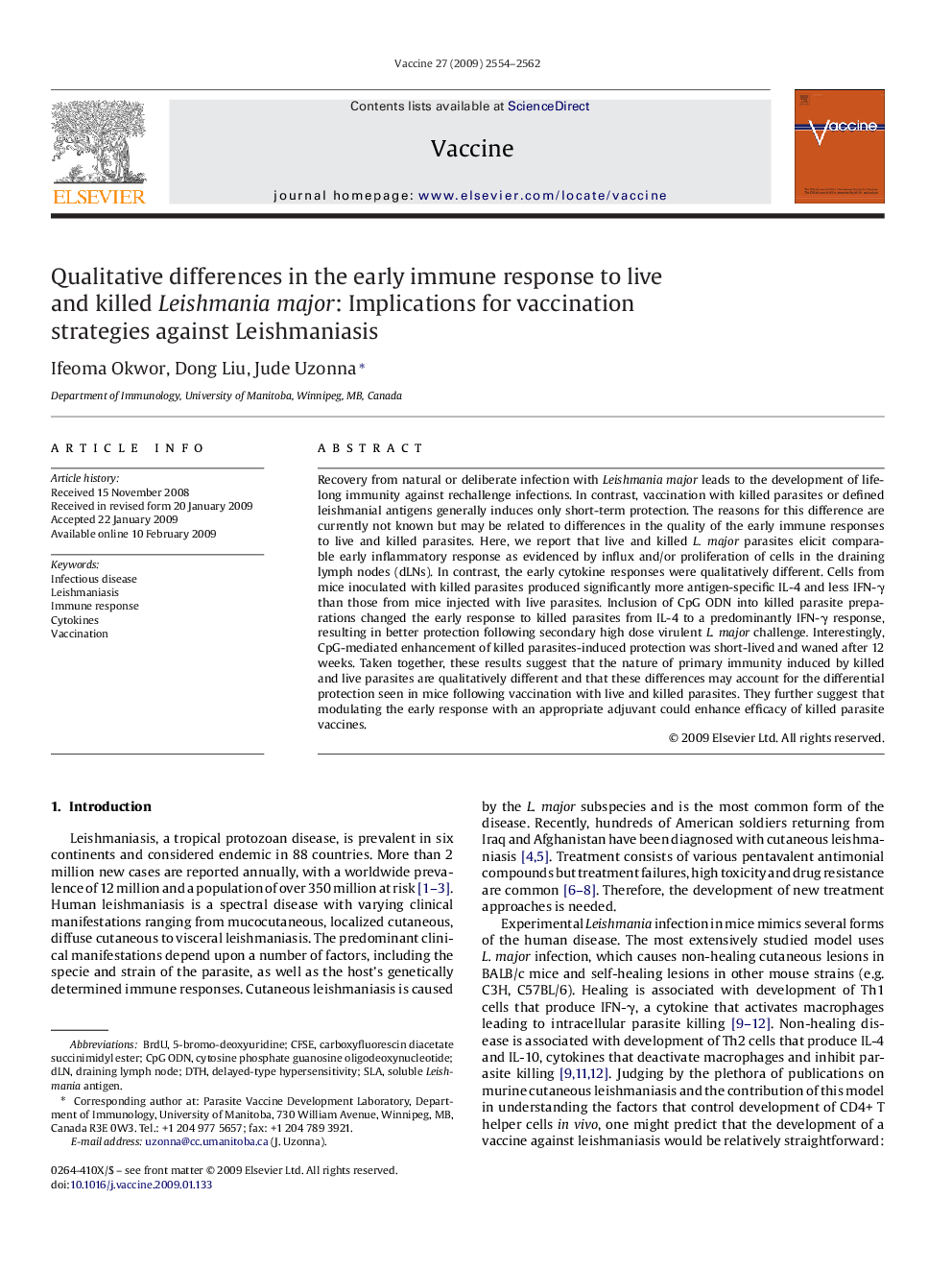| Article ID | Journal | Published Year | Pages | File Type |
|---|---|---|---|---|
| 2406858 | Vaccine | 2009 | 9 Pages |
Recovery from natural or deliberate infection with Leishmania major leads to the development of lifelong immunity against rechallenge infections. In contrast, vaccination with killed parasites or defined leishmanial antigens generally induces only short-term protection. The reasons for this difference are currently not known but may be related to differences in the quality of the early immune responses to live and killed parasites. Here, we report that live and killed L. major parasites elicit comparable early inflammatory response as evidenced by influx and/or proliferation of cells in the draining lymph nodes (dLNs). In contrast, the early cytokine responses were qualitatively different. Cells from mice inoculated with killed parasites produced significantly more antigen-specific IL-4 and less IFN-γ than those from mice injected with live parasites. Inclusion of CpG ODN into killed parasite preparations changed the early response to killed parasites from IL-4 to a predominantly IFN-γ response, resulting in better protection following secondary high dose virulent L. major challenge. Interestingly, CpG-mediated enhancement of killed parasites-induced protection was short-lived and waned after 12 weeks. Taken together, these results suggest that the nature of primary immunity induced by killed and live parasites are qualitatively different and that these differences may account for the differential protection seen in mice following vaccination with live and killed parasites. They further suggest that modulating the early response with an appropriate adjuvant could enhance efficacy of killed parasite vaccines.
